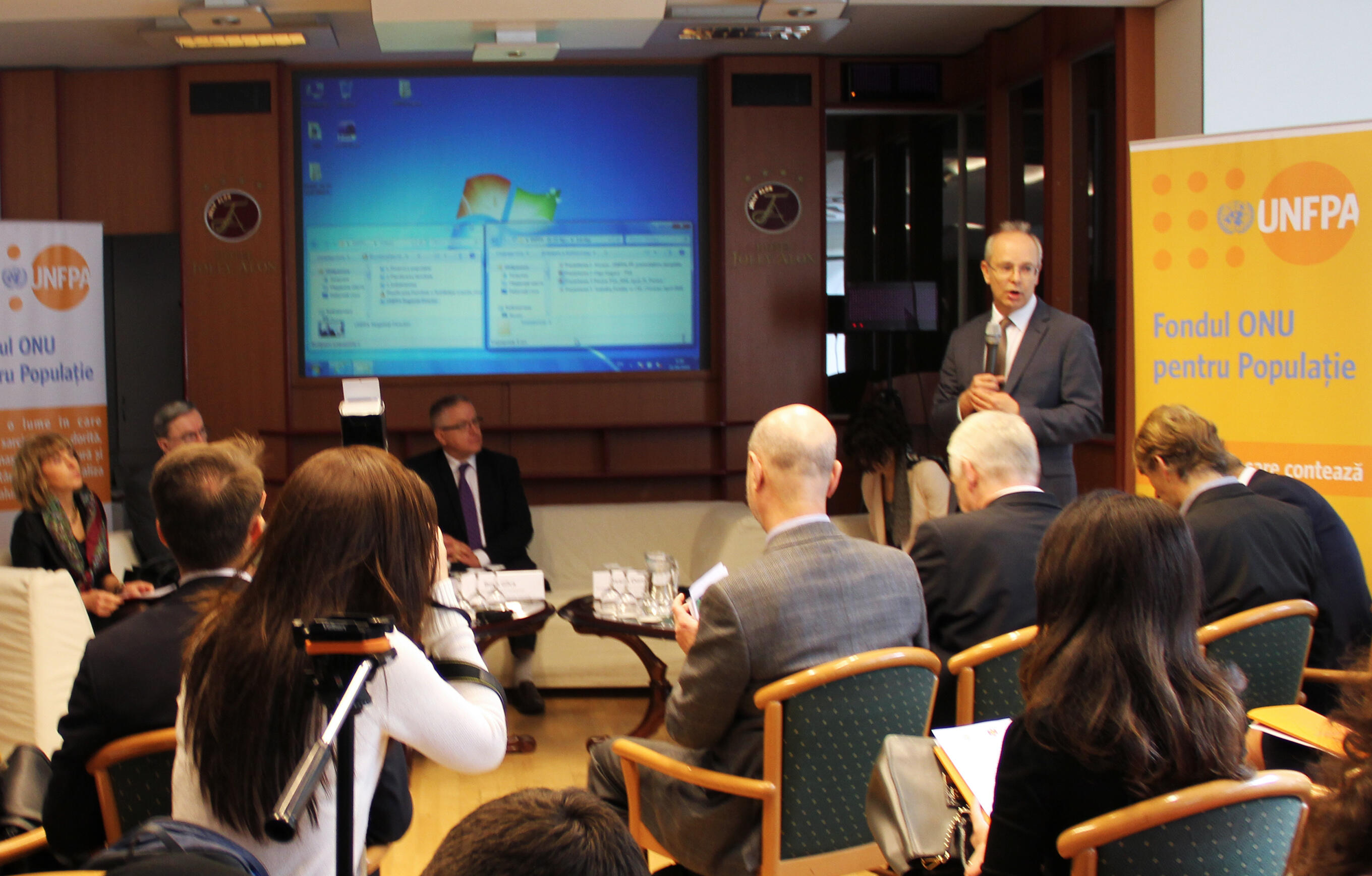CHISINAU, Moldova – One of the youngest countries in Europe, the Republic of Moldova is still faced with significant demographic challenges as rapid ageing and a low fertility rate spark fears about population decline.
Home to 4 million people in 1996, Moldova’s population has shrunk to 3.5 million as of 2015. Of these total inhabitants, almost 25 per cent are young people between the ages of 16 and 30. But 16.6 per cent are aged 60 years or older, a figure that is expected to more than double to 33.6 per cent by 2050. Meanwhile, the fertility rate according to official statistics is 1.24, well below the replacement rate of 2.1.
Moldovans say a lack of financial stability and confidence in the future is keeping the fertility rate down. ‘Conditions are very difficult in Moldova and many young people are leaving to go abroad for a better future. Only after that do they think about having children,’ one resident of Modova’s capital city, Chisinau, told UNFPA.
Young people emigrating from Moldova in search of better prospects often means the country’s older generation is left alone as they age. According to the Active Ageing Index for Moldova, active and healthy ageing is inaccessible for almost three-fourths of the country’s population aged 55 and older.
Possible solutions to Moldova’s population-related challenges were discussed this spring during the first meeting of an advisory panel set up by UNFPA’s Regional Office for Eastern Europe and Central Asia (EECARO) to help countries strengthen their demographic policies in response to changing population dynamics.
‘Moldova is the first country in our region to start a learning process through the International Advisory Panel on Population and Development [IAPPD],’ UNFPA Deputy Regional Director Ian McFarlane said at the inaugural IAPPD meeting, held 21-22 April in Chisinau with financial support from the Czech Republic Development Cooperation. ‘The IAPPD will help the government of Moldova develop evidence-based public policies focused on the rights and needs of people, which is very important for Moldova in general, but also for its aspirations towards the European agenda and meeting the global Sustainable Development Goals.’
Similar demographic trends to those observed in Moldova have led governments in countries such as Russia and Ukraine to try and boost population numbers by introducing incentives for childbearing and increasing the duration of maternal leave. But experience shows that such measures, in addition to being costly, do not work well in the long term as they may encourage couples to have a child solely for the financial benefits. The evidence shows that with every child born into a family struggling with poverty, the poverty of this family increases.
Another way some governments attempt to increase population numbers is by reducing access to contraception. But in France, where the modern contraceptive usage rate is a high 75 per cent, the population is actually growing by 0.5 per cent annually and the fertility rate is nearly replacement level at 2.0. The experiences of Estonia and Poland additionally demonstrate that shorter but better-paid parental leave, with parents receiving up to 100 per cent of their previous salary, could be a best-practice model for Moldova.
‘What’s important is not how many children are born in a country, but that a country [like Moldova] concentrate on policies which support people and families in having the children that they want to have, and on policies that create the best opportunities in the future for those children,’ IAPPD member Tomas Sobotka from the Vienna Institute of Demography said at the Chisinau meeting.
Developing human capital is essential for Moldova to shift its population and development policies to a new evidence-based paradigm grounded in human rights. The IAPPD’s role is to advise Moldova’s government and its National Commission on Population and Development on prioritising such investments, offering high-quality technical opinions, international expertise, and examples of good practices in other countries.
At the conclusion of the two days of discussion in Chisinau with government officials and representatives of parliament, academia, and civil society, IAAPD members presented their recommendations to Moldova’s National Commission for Population and Development. The government will use these recommendations in developing its national policy framework in the areas of population and development and sexual and reproductive health and rights.
The next meeting of the IAPPD in Moldova will take place in September 2016.


